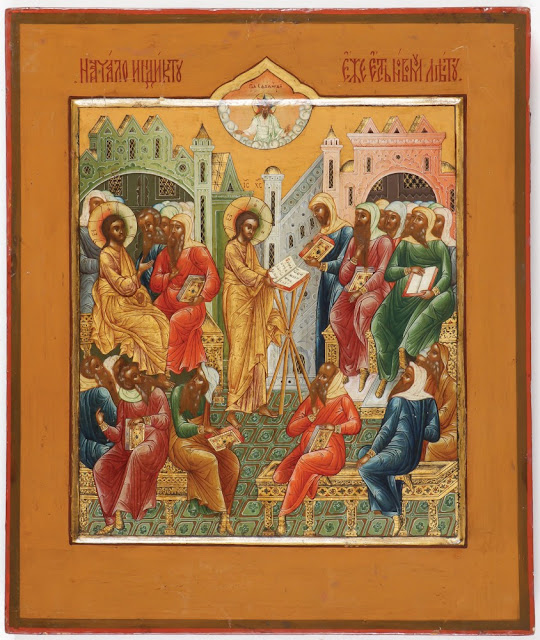By St. Justin Popovich
The First Ecumenical Synod decided that the ecclesiastical year begins on the first of September.*
For the Jews, the month of September was the beginning of the new civil year (Exodus 23:16), the month of gathering fruits and offering a sacrifice of thanks to God.
During this celebration, the Lord Jesus entered the synagogue in Nazareth, opened the book of the Prophet Isaiah and read the words: "The Spirit of the Lord is upon Me, because He has anointed Me to preach the gospel to the poor; He has sent Me to heal the brokenhearted, to proclaim liberty to the captives and recovery of sight to the blind, to set at liberty those who are oppressed; to proclaim the acceptable year of the Lord" (Lk. 4:18-19; Is. 61:1-2).
This month of September is also notable in the history of Christianity because in it the Emperor Constantine the Great won a victory over Maxentius, the enemy of the faith of Christ, and that victory was followed by the freedom of the Christian religion throughout the Roman Empire.
For a long time, the civil year in the Christian world was counted with the ecclesiastical year from the first of September; so it was transferred to the first of January first in Western Europe, and then in Russia during the time of Peter the Great, and in other Orthodox countries.
- From Lives of the Saints for September.
Notes:
* Some liturgical scholars assume that the custom of celebrating the Indiction by the Church was established in the 4th or 5th century. Nevertheless, the oldest relevant testimonies about the liturgical celebration of the Indiction as the beginning of the ecclesiastical year are found only in the 8th century, in the writings of Saint Theodore the Studite. [Translator's note]
If you enjoyed this post, please consider supporting the work of the Mystagogy Resource Center:
